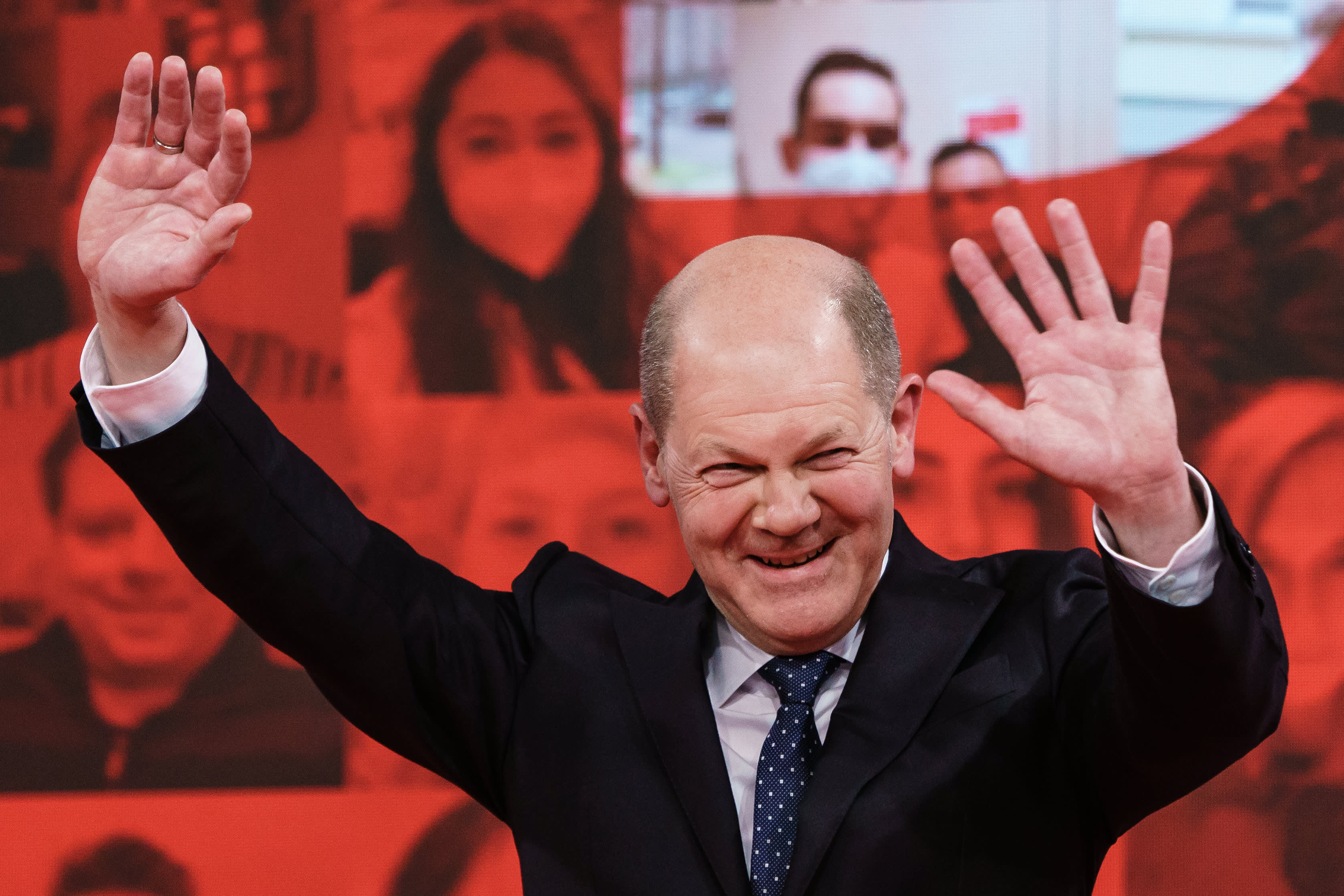
German Minister of Finance and Social Democratic Party (SPD) top candidate for the federal elections Olaf Scholz.
Pool | Getty Images News | Getty Images
Germany’s next government is about to take another big step toward completion, with a coalition deal set to be announced imminently after almost two months of talks following the country’s federal election in September.
As no one party gained a big enough share of the votes to govern alone, coalition talks have been taking place between the center-left Social Democratic Party, the Green Party and pro-business Free Democratic Party to try to find a compromise that would allow the parties to govern together.
The possible alliance has been described as a “traffic light” coalition in reference to the parties’ traditional colors.
Now, after almost two months of talks which have been widely described by the parties involved as “constructive,” it looks like a coalition deal will be announced on Tuesday or Wednesday.
Olaf Scholz, the SPD’s candidate, is set to be Germany’s next chancellor while Christian Lindner, the head of the FDP, is set to be the next finance minister, according to two people close to the coalition discussions who wanted to remain anonymous due to the sensitive nature of the talks.
The Green Party’s co-leaders, Annalena Baerbock and Robert Habeck, are poised to take on the roles of foreign minister and economy minister, respectively, the same sources said.
German Greens Party co-leaders Robert Habeck, German Greens Party co-leaders Annalena Baerbock, Olaf Scholz of the German Social Democrats (SPD), and Christian Lindner, head of the Free Democratic Party (FDP) give a press statement on October 15, 2021 in Berlin, Germany.
Jens Schlueter | Getty Images News | Getty Images
Germany’s long-standing chancellor, Angela Merkel, is stepping down from the role in the next few weeks after 16 years in office, marking a significant change in Germany’s political landscape.
Her party, the Christian Democratic Union (CDU) and its sister party, the Christian Social Union, have been largely left out in the cold during coalition talks following the election.
The CDU and CSU have been dominant in German coalitions for decades but will now find themselves in opposition after the alliance’s candidate for chancellor, Armin Laschet, failed to inspire voters. Laschet stepped down as state premier of North Rhine-Westphalia and is expected to be replaced as head of the CDU.
Scholz is a seasoned politician, having been the country’s finance minister in Merkel’s last government and Germany’s vice chancellor.



